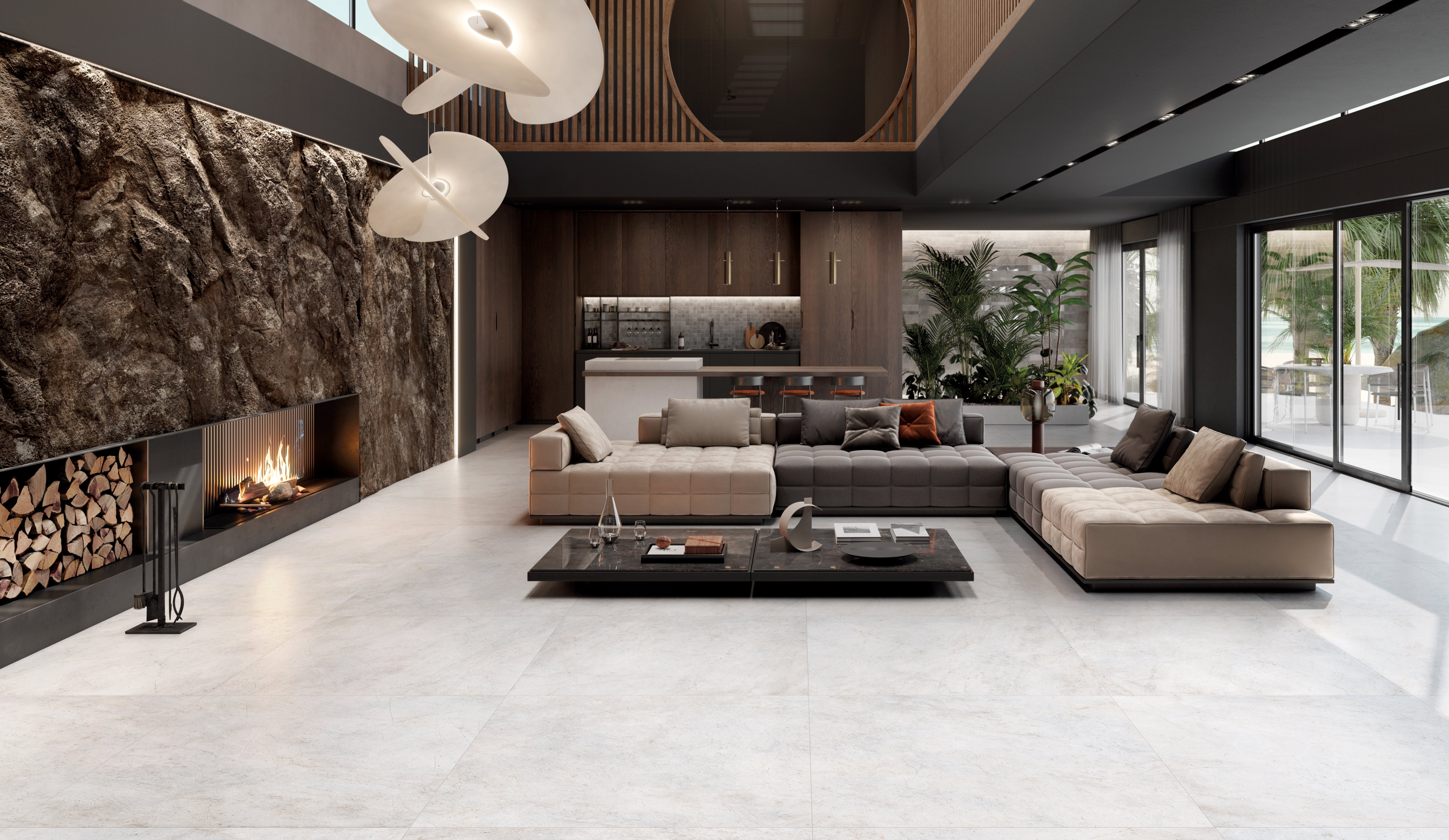Natural stone or porcelain stoneware? Here's how to choose!
Choosing whether to use porcelain stoneware or natural stone tiles for the flooring of your home is certainly a central step in any construction or renovation project. The choice of tiles, in fact, significantly influences the final aesthetic result, and has an important impact on the style and atmosphere that will be created in the home. To choose correctly, however, aesthetics is not the only element to consider: equally important is to take into account countless technical aspects, essential to achieve a truly satisfactory result and capable of guaranteeing excellent performance over time.
There are many factors that can help us make the right choice: here are some of the key elements to consider when choosing between porcelain stoneware and natural stoneware:
- Aesthetics: natural stones, such as marble or granite, are characterised by their uniqueness. Each block of stone, in fact, has slightly different veins and shades of colour, and this feature allows to obtain extremely appealing and pleasant aesthetic results. On the other hand, however, this means that using natural materials you can not be sure of complete colour uniformity, since the individual tiles can be made with different blocks of stone, similar but not necessarily identical, and that the range of colours available is necessarily limited.
The porcelain stoneware tiles reproduce with great precision the appearance of natural stone, taking up both the nuances and the material effect. This guarantees a greater homogeneous end result and extremely varied aesthetic effects, since the range of colours is very wide. - Hygiene and ease of cleaning: natural stone tiles and porcelain stoneware tiles stand out, at a technical level, for their different porosity, which affects their tendency to absorb what is deposited on their surface. Natural stones (marble in particular, given its limestone origin, but also granite) tend to be porous, unlike stoneware which is waterproof. This feature ensures that porcelain stoneware does not stain, does not absorb dirt or moisture and is easy to clean with simple neutral detergents. For the same reason, stoneware is also particularly safe from a hygienic point of view: its resistance to moisture, in fact, makes it more difficult for bacteria or mould to proliferate. Marble, unlike stoneware, is naturally porous, and therefore must undergo special waterproofing treatments before it can be used as a coating material. It remains, however, a more delicate material, with a greater tendency to stain and which requires special care especially to defend it from the aggression of acidic compounds.
- Resistance and durability: the hardness of a mineral is defined by a special scale, called the "Mohs Scale", which classifies the different materials according to their ease of scratching. At level 1 of the scale the talc is placed, at level 10 the diamond, and all other minerals are placed within this range. Natural stones havequite high hardnesses, generally between 6 and 7, with the exception of granite which has a hardness of about 7.5 on the Mohs scale. This shows that natural stones are certainly resistant to scratching and bending, but less so than stoneware, whose value on the Mohs scale reaches 8. In addition, porcelain stoneware guarantees greater resistanceto abrasion (therefore to continuous stresses involving the entire surface of the tile) and consequently greater durability over time.
- Thickness: Porcelain stoneware tiles can be made in a wide variety of thicknesses and can therefore also be very thin, unlike natural stone tiles which are not normally cut to a thickness of less than 1.8/2 cm. This feature not only affects the versatility of the tile, its weight and ease of laying, but is particularly importantto take into account in case you are considering the possibility of paving an already tiled surface, since the possibility of using thin, 6 mm thick stoneware tiles makes it easier to cover the existing floor, without the need to replace it.
- Environmental sustainability: choosing natural stone tiles means moving towards a product that is extracted from the environment, through processes that can have a very significant impact on the territory. Porcelain stoneware, on the other hand, does not exploit exhaustible resources, is produced through processes that do not pollute and do not consume large amounts of water and contains a significant percentage of recycled material; from anenvironmental point of view, therefore, porcelain stoneware is certainly a more sustainable choice than other natural materials.
- Price: One last important consideration concerns the price difference between porcelain stoneware tiles and stone slabs. The price of porcelain stoneware varies depending on several factors (thickness of the tile, aesthetic effect required, materials used...), but it always remains lower than that of natural stone, which, precisely because of its extraction process, the treatments it requires and the difficulties associated with its installation, poses costs that can hardly be reduced.
Do you want to know more about the characteristics of porcelain stoneware and Tagina solutions that reproduce the effect of natural stone? Browse our catalogue and contact us.

